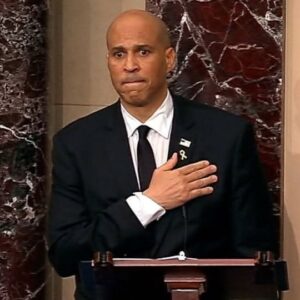In a ruling that could reshape how millions of American veterans pursue disability claims, the U.S. Supreme Court has decided against expanding judicial oversight of Veterans Affairs (VA) decisions. The 7-2 ruling, issued Monday in Bufkin v. Collins, limits the ability of federal appellate courts to independently review how the VA applies the long-standing “benefit-of-the-doubt” rule — a principle meant to favor veterans when evidence in a case is evenly balanced.
Writing for the majority, Justice Brett Kavanaugh stated that Congress had given the VA “broad and specialized authority” to determine veterans’ benefits, and that courts should defer to the agency’s expertise unless there is “clear evidence of misapplication or misconduct.” Kavanaugh’s opinion emphasized that while federal courts retain the power to ensure fairness, they should not “second-guess the fact-based determinations” made by VA adjudicators.
The case originated when Army veteran David Bufkin appealed a denial of his disability claim, arguing that the VA had failed to properly apply the benefit-of-the-doubt rule to evidence linking his chronic back pain to his service. Bufkin’s attorneys argued that federal courts should have the power to reexamine how the VA weighed such evidence — not just whether it followed procedure.
Lower courts rejected Bufkin’s argument, and Monday’s decision upholds those rulings. The outcome solidifies the VA’s discretion in determining whether claims meet the necessary standard of proof, even in close cases.
A Setback for Veterans’ Rights Advocates
Veterans’ groups and legal advocates expressed deep disappointment following the decision, saying it undermines one of the few protections veterans have in a complex and often slow benefits system. “This ruling effectively ties the hands of federal courts and leaves veterans at the mercy of an overburdened bureaucracy,” said Paul Lawrence, a former VA undersecretary. “The benefit-of-the-doubt rule was supposed to ensure fairness. Now, it’s toothless.”
Critics also argue that the decision could discourage veterans from appealing adverse rulings, knowing that judges may have limited power to challenge the VA’s findings. The ruling, they warn, could have far-reaching implications for veterans suffering from conditions that are difficult to document — such as post-traumatic stress disorder, chemical exposure, or Gulf War illnesses — where medical evidence often relies on subjective symptoms.
Government Defends the Decision
In defending the outcome, the Department of Veterans Affairs applauded the Court’s decision, saying it preserves efficiency in a system that handles hundreds of thousands of claims annually. “The VA remains committed to fairness and accuracy,” a spokesperson said in a statement. “This ruling allows us to continue providing timely benefits decisions without excessive judicial interference.”
The VA has long argued that its internal review process — which includes multiple layers of appeals within the agency — is designed to give veterans ample opportunity to challenge denials before resorting to federal court. Supporters of the decision also note that expanding judicial oversight could have overwhelmed courts with thousands of complex medical and procedural cases.
The Dissenting Voices
Justice Sonia Sotomayor, joined by Justice Ketanji Brown Jackson, dissented strongly, writing that the Court’s majority “fails to appreciate the imbalance of power between a massive federal agency and the individual veteran.” Sotomayor argued that the decision “weakens the very safeguard Congress created to protect those who risked their lives in service to this country.”
She went on to say that veterans “should not be forced to rely solely on the good faith of the agency that so often delays or denies their rightful benefits.”
What Comes Next
Legal experts predict that while the ruling won’t immediately affect all pending claims, it will influence how attorneys approach future appeals. The VA’s internal decisions will now carry even more weight, with limited avenues for judicial correction.
“This is a watershed moment,” said Dr. Catherine Hall, a veterans law specialist. “It sends a clear message that the Supreme Court is prioritizing administrative efficiency over individual justice. For many veterans, that’s a bitter pill to swallow.”
For now, veterans’ organizations are urging Congress to step in, calling for legislative reform to restore stronger judicial review powers. Several lawmakers have already signaled interest in revisiting the issue.
As the debate continues, one thing remains certain: America’s veterans, who have already sacrificed so much, will continue to face a difficult road in their fight for the benefits they were promised.





